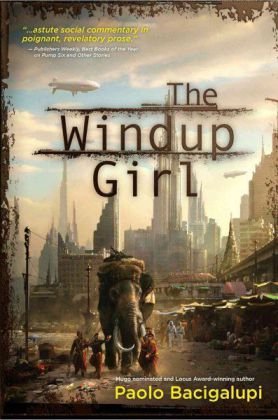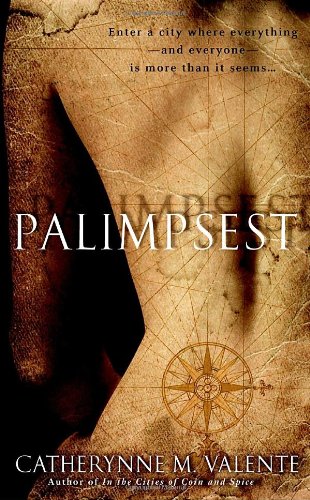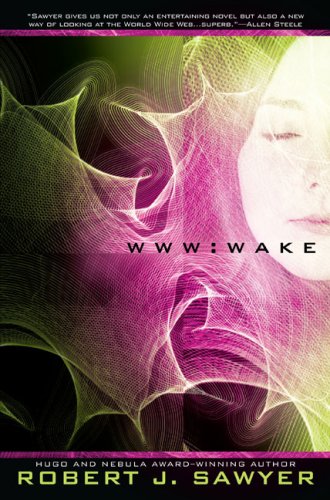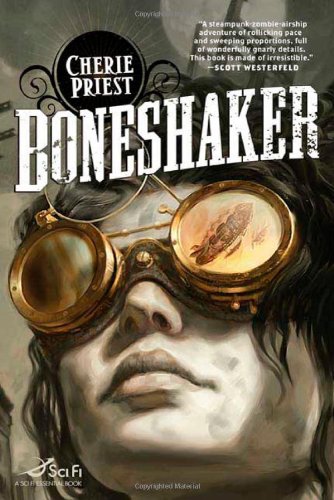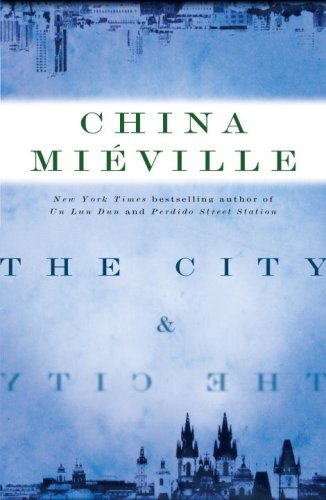What if I got to pick the 2010 Hugo winner

The six books nominated for the 2010 Hugo each have something to recommend them. In the order that I read them:
1) China Mieville’s fantasy The City and the City is a solid story exploring issues like customs and politics carried to a kind of logical extreme. The story’s vehicle is a mystery, featuring your standard police officer who finds himself forced to go rogue in the pursuit of justice.
2) Cheri Priest’s steam punk story Boneshaker is a fairly conventional genre story hitting all of the expected notes. It has a mad scientist. It has a mother trying to rescue her strong willed son from certain death by poison gas or zombies or worse. What’s not to love?
3) Robert Charles Wilson’s prophetic Julian Comstock is stylistically unconventional for sf and paints a somewhat dreary though realistic picture of a possible future. It’s a coming of age story featuring a young man who is learning to tell the difference between what he was taught and what really is.
4) Robert J. Sawyer’s techno-fable WWW.WAKE is perhaps the most conventional of the stories in this list. It deals with ideas familiar to fans of sf, and has characters that are easy to relate to.
5) Catherynne M. Valente's fantasy Palimpsest is perhaps the most unconventional story in this list. Written in what would be described as a post modern style it concerns several people who very much want to live in their dream world, and are willing to go to extraordinary lengths for that. It might be an allegory of addiction, but maybe not?
6) Paolo Bacigalupi’s futuristic The Windup Girl paints another dystopian picture of what’s to come, a cautionary tale of where genetic manipulation and corporate power may lead. It’s a bit sloppy on the editing, but the story more than makes up for that.
Of these stories, two don’t come close to fitting the original concept of sf story. That Mieville’s story and Valente’s story were even nominated has to tell us something of where sf and sf fandom is going. Perhaps the fact that WorldCon 2010 is taking place in Melbourne is contributing to this, but you only have to look at past nominees to realize that the landscape is in fact changing, not just in Australia.
I enjoyed all six stories. But I had complaints about them, too.
I thought Sawyer’s story was too pat. The story is about a familiar notion in SF. But the bits that Sawyer should have gotten right aren’t even close to plausible, and he offers nothing new to explore. Stylistically the book is a bit weak, teetering on the edge of YA (which would be OK) without actually quite making the jump, and yet managing to talk down to the reader, which is a huge no-no in YA.
Priest’s zombie nightmare was a case of writing by the numbers. The trick when you’re following formula, intentionally or otherwise, is that you can’t make it quite so obvious. If the story were intended to be campy, it’d be a different matter, but Priest is fully serious. In the end that rescues the story, but the formula is still out there, like the proverbial elephant in the living room.
Bacigalupi’s story could have used better editing, especially at the end. There are bits throughout the story where sense of space and sense of time get thrown to the winds, where places that are far apart appear to be next door to each other, where something that takes a week seems to be taking place at the same time as something else that takes a few hours. Toward the end, however, the editing is very bad. A new character gets introduced, for no apparent reason, and sort of half-heartedly dragged a long for a few pages before it’s completely forgotten and ignored.
Valente’s writing style requires a firm grasp of vocabulary, seeing that she makes words and their semantic overlay stand in for paragraphs of description. But there are several places where she slips up, and a word gets misused, and the effect is jarring.
The two stories about which I had no complaints at all are Mieville’s mystery and Wilson’s future romance.
Wilson’s story, with its 19th century stylings, and its frightening social and political landscape, is of the two the actual sf story, seeing that it takes place in a plausible future against a historical landscape that makes sense given what is going on right now.
Mieville’s story is not sf in any conventional sense. It might be described as a fantasy, or maybe an allegory, given how it looks at what a person might force themselves to believe, and how that might shape their perception of reality. It is stylistically strong but unremarkable, and entirely competent throughout.
I find myself kind of vacillating between these two stories. I have to admit that I’m partial to Mieville’s stories in any event. It is not easy for me to filter out that prejudice. In the end I’m weighing the fun I had reading these two stories. That’s where Mieville comes out on top. Perhaps it’s that I also enjoy mysteries, or perhaps it is that the theocracy in which Wilson’s story takes place frightens me more than I want to admit.
I think while all six stories are solid stories, and while both Wilson’s story and Mieville’s story deserve top billing, in the end Mieville wins my vote as the 2010 Hugo novel.
